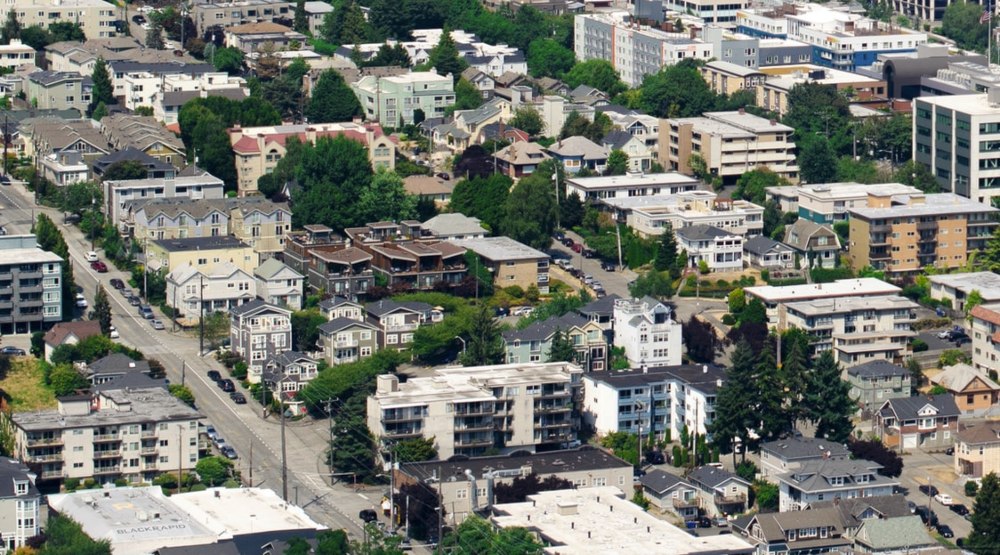
In the struggle to maintain some semblance of affordable housing in the Seattle area, King County Assessor John Wilson — along with allies including the Rental Housing Association — is pushing a bill through the state legislature that uses property tax exemptions to keep rents down.
House Bill 1035, which received uniformly favorable comments at a Finance Committee hearing last Monday, [Feb. 8] would exempt from property tax rental properties currently charging below market rents, a level to be established by cities and counties offering the program based on area median income (AMI). The exemption for qualifying apartment units and mobile homes would last for six years, renewable for another six years.
Simply put, the exemption would zero out property taxes on low-cost apartments, enabling landlords to make money without raising rents. Owners would apply to counties or cities to join the program. At the end of six or 12 years, taxes on program properties would resume. A landlord in the program who raises rents gets kicked out and hit with back taxes and penalties.
Wilson, who refers to the bill as the “Renter Relief Act,” says the objective is “to preserve and protect existing housing” threatened by growth and the upward push of property taxes. Under current law, property tax is based on “highest and best use.” That means, for example, that a charming 1930s brick apartment on Capitol Hill will be taxed at the same rate as its shiny new neighbor, creating upward pressure on rents or, often, an incentive to sell for development. The assessor estimates that as many as 25,000 properties affecting 250,000 renters in King County could qualify.
On Monday, the bill’s prime sponsor, Rep. Shelley Kloba, D-Kirkland (1st District) said her interest in the problem of rising rents was sparked when a mobile home park just blocks from her home was slated for demolition – and displacement of the low-income owners and renters.
The problem is serious. Of Seattle’s roughly 360,000 housing units, about 45 percent are apartments housing approximately 360,000 people, about half the population. Only among one-bedroom apartments are there many still affordable to people with less than 80 percent of median income, $72,400 for a single person in 2019. But affordable is a slippery term. Of renters earning less than 80 percent of AMI, 36 percent pay more than half their income for rent, and 70 percent pay more than 30 percent of income for rent. The terms of art for these residents are “cost burdened” and “severely cost burdened.” Among the latter, many are on the edge of homelessness following jobs lost in the pandemic shutdown.
HB 1035 will take effect 90 days after the end of this legislative session, so probably late summer. Though it may not stem the tide of evictions likely as federal and state pandemic relief measures phase out, it will over time create a pool of relatively affordable rentals, “workforce housing,” which Wilson points out is its long-term goal.
The assessor is also pushing a property tax exemption bill (prime sponsor Manka Dhingra, D-Redmond, 45th District) that could help businesses closed down or under patronage restrictions due to state actions to prevent the spread of Covid-19. Property tax laws allow tax reductions for disasters such as floods and earthquakes which cause losses of business income. Wilson’s proposal, Senate Bill 5282, would add government restrictions for public health to the list of “disasters.”
Last year, suggesting additional help to revitalize Covid-closed street-level retail businesses, we proposed here a property tax exemption similar to HB 1035. Under that proposal, landlords with retail, restaurant and other street-facing service businesses in their buildings could obtain a property tax exemption for those spaces as long as they passed 100 percent of the savings on to their tenants. Though Wilson thought the idea had merit, December was too late to develop it for this legislative session.

The lost property taxes from this suggestion will presumably be made up by raising property taxes on all other homeowners and renters? This makes me wonder if the effect of this well-intended proposal is to raise the cost of housing for many more residents than those who get a benefit. What am I missing here?
Yes, the lost revenue will be made up across all properties in the county. Spread around like that, the County Assessor assures me that it will be pretty much unnoticeable for other taxpayers. The same applies to my earlier suggestion in these pages that there be a break for landlords of street-facing commercial businesses conditional on the landlords passing the whole savings to tenants. Here the savings for renters is a guarantee the rent won’t go up for 6, or even 12 years, creating an inventory of affordable rentals.